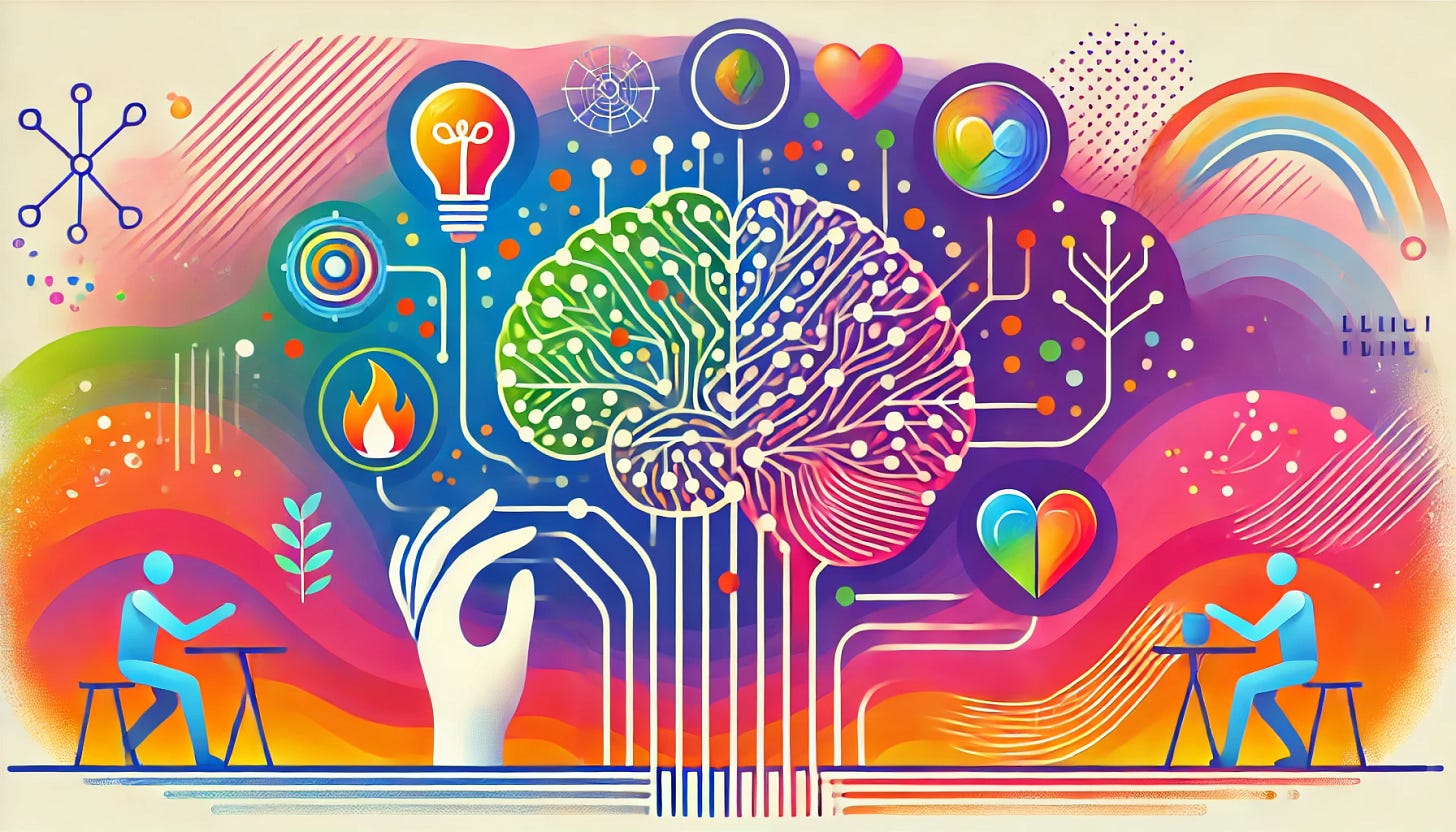Neural City: The Invisible Dance of Neurons and Nutrition
Exploring the Intricate World of Neurotransmitters and Their Impact on Brain Health
Imagine your brain as a bustling city where roughly 86 billion neurons live, each acting like a tiny, intricate office sending and receiving messages all day, every day. These messages are crucial; they control everything from your heartbeat to your thoughts about what to eat for lunch. This city isn’t isolated—it’s part of a sprawling country called the nervous system, which includes all parts of your body, helping you interact with the world around you.
In this bustling neural city, neurotransmitters are the messengers—think of them as the city's postal workers. Without them, nothing in the body works. They carry "letters" (chemical signals) across "streets" (synapses) from one "office" (neuron) to another. These letters instruct your muscles to move, your lungs to breathe, and your stomach to digest. They also affect your mood, memory, and ability to learn. In short, neurotransmitters manage nearly every function, ensuring the city runs smoothly.
Now, let’s consider what happens when these neurotransmitters don't do their job correctly. It’s like a postal strike in our neural city—letters don’t get delivered, parcels are lost, and essential messages that ensure the city functions smoothly go unread. This can lead to numerous issues, such as depression, anxiety, schizophrenia, and other neurological and psychiatric conditions. Essentially, when neurotransmitters fail, the city's operations can start to break down, affecting everything from emotions to physical capabilities.
Moreover, this vast network of neurons, with all its messengers and connections, is involved in everything we do, think, and feel. From the simplest reflexes—like pulling your hand away from a hot stove—to complex thoughts and emotions, the nervous system is at the core of it all. It’s an incredibly intricate and delicate system, yet robust enough to last a lifetime of use and adaptable enough to learn from every new experience.
Neurological diseases are thus particularly challenging because they represent disruptions in this complex system. Alzheimer’s disease, for example, involves the death of neurons and the breakdown of the neurotransmitter system that affects memory and cognitive function. Parkinson’s disease, on the other hand, primarily affects the neurons in an area of the brain that controls movement, leading to the classic symptoms of shaking and difficulty with coordination.
Understanding the nervous system and its array of neurotransmitters opens up a universe of possibilities for treating and managing these diseases. The importance of good nutrition and lifestyle can't be undermined for optimum nervous system functioning. For instance, certain nutrients can influence neurotransmitter levels, similar to how antidepressants alter serotonin and norepinephrine to improve mood and stress responses. Omega-3 fatty acids, found in fish oil, can help balance neurotransmitter levels and support brain health, while adaptogens like ashwagandha can modulate stress hormones to improve overall resilience and well-being. Through functional nutrition, we can target specific health concerns by leveraging the power of natural compounds to support the body’s biochemical processes.
The depth of the human brain’s complexity is matched by its fragility, making the study of neuroscience not just fascinating but also crucial to improving human health. Every discovery in this field brings us one step closer to understanding this beautifully complicated system of the body providing hope for millions affected by neurological disorders.
So next time you experience a moment of joy, make a decision, or even perform a mundane task like tying your shoes, take a moment to appreciate the silent, invisible dance of neurons and neurotransmitters that makes it all possible. Our entire experience of the world depends on this complex, wonderfully efficient system.





